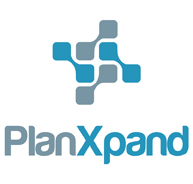
Consumer-Driven Healthcare:
Some Key Observations
Consumer-Driven Healthcare (CDH)* is an approach to health coverage and service delivery that focuses on motivating consumers to become more actively engaged in their health and well-being.
The most successful CDH plans are designed to put the interests of the consumer first, and offer greater simplicity, ease and transparency than traditional health insurance plans. From an operational perspective, successful CDH plans must be highly integrated, and feature a single CDH administration process designed for a single product.
While there are many different types of products and programs that position themselves within the CDH category, they all share a basic philosophy: that consumers will do the right thing if they have the necessary tools, information and financial incentives.
More specifically, a core belief of many CDH administrators is that competent and engaged consumers of health care will:
- Expect better value for their healthcare dollar, leading to better health outcomes
- Realize that lifestyles and behaviors contribute to health — either negatively or positively
- React more positively to rewards than to punitive actions
- Seek the tools and programs necessary to become more efficient consumers of healthcare services
- Respond to wellness programs that help maintain good health, especially when financial incentives are offered
Successful Program Components
Creating and motivating engaged consumers requires an effective mix of components, programs and tools. Some of the most essential are described below.
The Account
Generally, the central component of a CDH product is a health “account” for each consumer, giving them the sense that they are “spending their own money” for healthcare. In fact, this feature fundamentally changes the concept of cost-sharing compared against non-CDH plans, which often obscure the actual price of services for consumers.
Generally, there are three types of CDH accounts, which can be offered individually or combined in hybrid forms:
-
Health Reimbursement Account (HRA)
A notional account that is pre-funded and used for defined medical expenses. The account may be funded and owned by either the plan or the employer, but is only used once a service has been rendered. Unused funds remain with the employer or plan.
-
Health Savings Account (HSA)
A tax-preferred account funded with actual dollars owned by the account holder. Funds are only available after the consumer deposits them (and/or in some cases by the employer).
-
Health Reward Account
A notional account that is funded by either the plan or employer, based solely on specific desirable consumer actions. Technically an HRA from the IRS’ perspective, this type of account is sometimes referred to as a Health Incentive Account.
Supporting Programs
Additional important components of CDH plans are the programs offered to support the consumer in pursuing good health, or in making condition-specific decisions. These include wellness programs that address behaviors that lead to poor health, such as sedentary lifestyles, poor nutrition or smoking. Other types of supporting programs help consumers with disease or condition management by setting goals and monitoring progress.
Incentives
Most CDH programs feature financial incentives to foster a supportive environment for engaged consumers. These incentives can include money for health risk assessment completions, participation in wellness or condition-specific programs and other rewards.
Online and Offline Tools and Support
These components can include tools and resources that provide price transparency and quality information to consumers, along with educational and health decision tools.
Consumer Focused Service
An often overlooked, but vital, element is a customer service team that understands CDH and has access to the information and tools necessary to support the consumer in a coherent and responsive way. Using cryptic explanations of benefits or having to translate a complicated, disjointed administrative process into a coherent understanding for the consumer does little to encourage the consumer to actively participate in their care.
* Many aspects of Consumer-Driven Healthcare are still evolving, including the term itself and its various permutations, including Consumer-Directed Healthcare, Consumer-Driven Healthcare Plans vs. Consumer-Driven Healthcare Products, etc. For the purpose of this document in particular and this website in general, we use Consumer-Driven Healthcare, abbreviated CDH.



 Facebook
Facebook
 Twitter
Twitter
 LinkedIn
LinkedIn